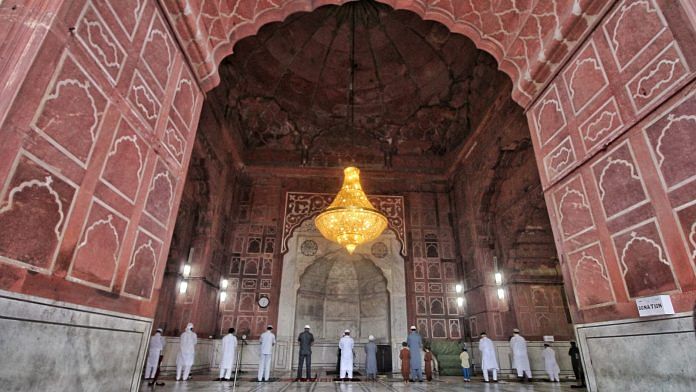There is no mention in the Quran that one can suggest that it propagates casteism. Rather, there is a very famous verse in the holy book, in which Allah says, ‘I have created you from male and female, and I have created your races and tribes, so that you can identify each other. The most honorable among you in the sight of Allah are those who fear him the most. (Sura: Huzurat Ayat No. 13)
It is based on this verse that it is said that Islam does not endorse racism/casteism and this distinction has been made only for the sake of identification and differentiation.
Still, the Ashraaf ulema and other Muslim intellectuals often argue in favour of casteism. They interpret, or rather misinterpret Sura: Huzurat Ayat No. 13 to further their narrative, saying that caste can never be eradicated because it is inscribed in the Quran that castes have been created for the purpose of identification.
Drawing reference from the above verse, some scholars of the Ashraaf Ulema have also noted that as per Islam, a man will only be considered superior to a woman if he is a muttaqi (God-fearing/religious). An Arab (a resident of Arabia) obtains superiority over a non-Arabian on this basis only. Sayyid has also been considered superior to Arabic and non-Arabic Muslims on the basis of the taqwa factor. But, socially, men, Arabs and Sayyids, irrespective of their obeisance to taqwa, are always considered superior.
Ashraafs further say that as per the tenets of Islam, the main criteria for being ‘superior’ is being religious, provided one does not take pride in it. So, even though it is forbidden to take pride in being religious, it does not mean that religious people are not superior. Similarly, it is prohibited to take pride in one’s superior race/caste but that does not mean that people belonging to such caste/race aren’t superior. (Page No.11, Nihayatul Arib fi Gaytoon Nasab, Mufti Shafi Usmani, Jamiatul Musleheen Saharanpur)
In his book on Islamic marriage, Alim Ashraf Ali Thanvi, writes, “One should not take pride in his Nasab (race, lineage, caste), but it does not mean that Sharf Nasab (upper caste) is not a real thing. Look, it is not in the hands of any person to be beautiful, or blind, and one should also not be proud of it. But can anyone say that being beautiful is not a grace bestowed by Allah? Surely, this is a gift from God. In this same way, everyone should understand that it is not in anyone’s control to be born in a higher caste, so no one should be proud of it. But they should also not have any doubt about this being a gift of God”. (At-Tabligh Page 218 Volume 8, Hakimul-Ummat Ashraf Ali Thanvi, Islamic Marriage (Murattab Maulana Mufti Muhammad Zaid Mazahiri Nadvi), Page No.062)
Thanvi further writes that equality is reserved for aakhiraat (afterlife or life after death where there is both heaven and hell). In the real world, however, it is important to respect one’s caste superiority and identity.
Also read: Pasmandas must open their eyes after UP bypolls. Ashraaf Muslims only guard own interests
Muhammad and the discrimination he faced
The elite Jews of Arabia used to taunt Muhammad for his race, mocking his prophethood and denying him his identity as a prophet. They said he is a progeny of a slave woman — how could a progeny of a slave be a prophet? Till then, the prophets had been in the Jews. Muhammad’s ancestor Ismail was Ibrahim’s son who was born to a female slave, Hajra.
Muhammad’s anti-racial stand is evident in certain events such as the marriage of slave Zaid with the daughter of Muhammad’s aunt. Another incident involves appointing Osama, again son of a slave, as the general in an important war. Then, there is the example of Shaqran and Bilal. The former was the only person outside Muhammad’s family to have been present at his grave, at the time of the funeral. Bilal too was among Muhammad’s favourite.
But the Ashraaf Ulema presents Zaid’s marriage, which was broken in the lifetime of Muhammad, as an example to conclude that a marriage of unequals is not a good idea, thereby promoting discrimination.
So even though the Quran does not endorse racism/casteism, the Ashraaf ulema have tried their best to propagate racism in their own interpretations of the Quran. Being a victim of racial discrimination himself, Muhammad fully understood this agony and tried his best to end it with his own behaviour and conduct.
Faiyaz Ahmad Fyzie @FayazAhmadFyzie is an author and social activist, and a doctor by profession. Views are personal.
This is the first of a four-part series in ThePrint—Islam Divided.
(Translated by Ram Lal Khanna from the original in Hindi and Edited by Anurag Chaubey)



